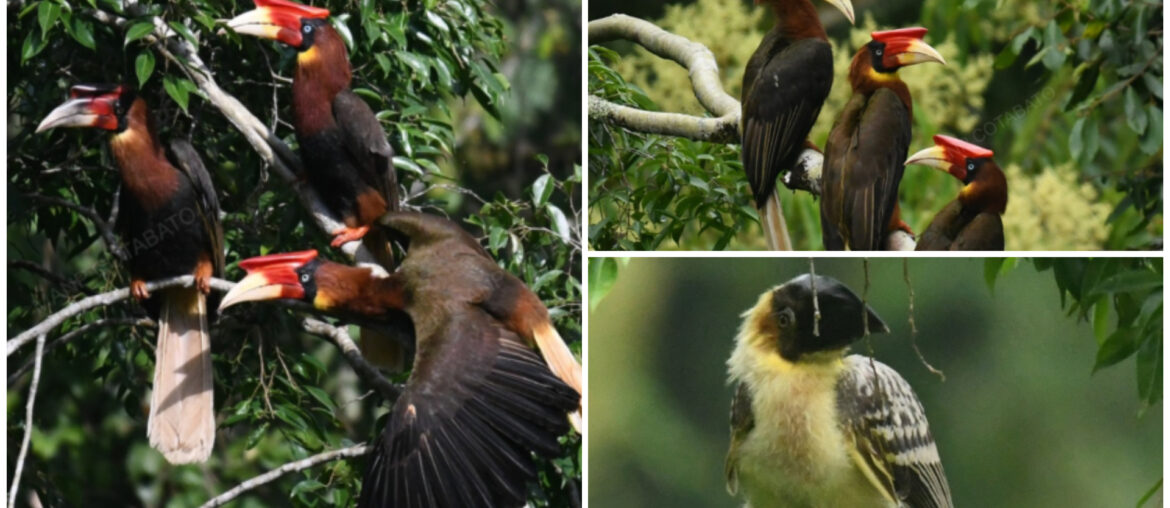“Animals are, like us, endangered species on an endangered planet, and we are the ones who are endangering them, it, and ourselves. They are innocent sufferers in a hell of our making.
Jeffrey Moussaieff Masso
During a monitoring activity conducted by the Philippine Eagle Monitoring team from September 9-14, 2024, three adult Rufous Hornbills and one juvenile were spotted near the peak of Mt. Apo in Magpet, North Cotabato. This marks the second recorded sighting of the species in the area, with the first observed in May.

WHAT IS A RUFOUS HORNBILL?
The Rufous Hornbill, locally known as kalaw, is a large bird species that can only be found in the Philippines. It’s called the “clock of the mountains” by locals because of its loud, booming calls, which are often heard at regular intervals, almost like a clock. These birds thrive in moist tropical lowland forests, but they are now considered a threatened species due to habitat destruction, hunting, and poaching for the illegal pet trade.

Under Philippine law (RA 9147), it’s illegal to hunt, capture, or possess these birds. Rufous Hornbills are frugivores, meaning they feed on fruits. By eating fruit and dispersing seeds through their droppings, they help maintain the balance of their ecosystem, especially by aiding in the growth and spread of large fruit trees. This seed dispersal is also critical for reforestation, as these birds help regenerate forests naturally.
MINDANAO DOCUMENTATION

The sighting of a juvenile Rufous Hornbill at Mt. Apo Natural Park is an encouraging sign because it suggests that the species might be actively breeding in the area. This is a significant milestone for conservation efforts, as it shows that the hornbills are finding the conditions they need to reproduce. This progress is important for biodiversity conservation in the province, as it highlights the necessity to protect these habitats to ensure the survival of the species.

The hornbills, by helping to disperse seeds, play a crucial role that keeps forests growing and greener. To protect the species and their habitat, the Cotabato Protected Area Management Office (PAMO) is increasing its conservation efforts. They are working closely with local communities, government units, and conservation organizations to ensure the long-term survival of the hornbills and the ecosystems they support.



Comments are closed.